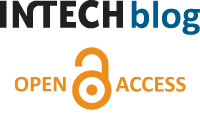 How much has the world changed in the last three hundred years? And how much has the copyright changed if we do not count the slight modification for worse, when the 80’s renewed law left nothing of our collected work for the public domain. Lessig has been sending warnings many times that in a digital age such restrictions to access cause “elite-nment, rather than enlightenment”.
How much has the world changed in the last three hundred years? And how much has the copyright changed if we do not count the slight modification for worse, when the 80’s renewed law left nothing of our collected work for the public domain. Lessig has been sending warnings many times that in a digital age such restrictions to access cause “elite-nment, rather than enlightenment”.
Today, finally, the Britsh are asking: “Could it be true that such laws are today obstructing innovation and economic growth?”
The answer, although obvious, receives more value when sought by the UK Prime Minister. The result of the review, commissioned by the minister, was published in a review yesterday, known as the Hargreaves report, conducted by journalism professor, Ian Hargreaves.
Copyright Exceptions for the Digital Age
From the foreword: “Copyright, once the exclusive concern of authors and their publishers, is today preventing medical researchers studying data and text in pursuit of new treatments. Copying has become basic to numerous industrial processes, as well as to a burgeoning service economy based upon the internet. The UK cannot afford to let a legal framework designed around artists impede vigorous participation in these emerging business sectors.”
This notion is finally in favour of the fact that we need access to research every day, and that this is no longer a matter of “utopia” but the matter of – requirement, a sort of an emergency, even for the market. The report goes on: “Our intellectual property framework will face further significant pressure to adapt in the coming years, as we make our way into the third decade of the commercial internet.” The third decade of the commercial internet could bring either constant crisis due to the lack of knowledge, or sudden free flow of information. Since now, “much of the data needed to develop empirical evidence on copyright and designs is privately held. It enters the public domain chiefly in the form of ‘evidence’ supporting the arguments of lobbyists (‘lobbynomics’) rather than as independently verified research conclusions,” Ian concludes, “we urge Government to ensure that in future, policy on Intellectual Property issues is constructed on the basis of evidence, rather than weight of lobbying.”
So, what is the evidence that:
Intellectual Property is important to growth:
In advanced economies like the UK’s, innovation is crucial to competitive edge. That makes Intellectual Property (IP) policy an increasingly important tool for stimulating economic growth.
The IP framework is falling behind and must adapt:
IP law must adapt to change. Digital communications technology involves routine copying of text, images and data, meaning that copyright law has started to act as a regulatory barrier to the creation of certain kinds of new, internet based businesses.
“The last 15 years,” Ian says, “have seen an explosion in work on the economics of IPRs, arising from the growing recognition of the importance of innovation in driving productivity and growth in advanced economies.” With the rising new wave of digital technologies, including cloud computing, digital wallets and electronic ads, how hardly blown up would the IP system be in the next 1,5 years.
“It is now clear to everyone that digital technology is transforming copyright, for better and for worse. Infringement is widespread; understanding of the law is poor; millions of works cannot be digitised for conservation or accessed at all and content industry business models are under strain, prompting companies to look to Government for vigorous enforcement action against consumers and suppliers of “pirate” content.” Is this the evidence enough?
Copy Right is Getting Closer to the Copy Left?
From the European Publishers Council they state: “The answer to the machine is in the machine”. This could be a breakthrough moment for the copyright lobbyist. However, for more than decade now, the leaders of the copyleft movement are putting this law into practice by making licenses based on the fact that “code (machine code) is law.” The report continues: “It is widely acknowledged that the solution to these difficulties lies in the very technologies that created the problem.”
This mildly explains the fact that Creative Commons is not against author rights and is not working against copyright. The idea that practicing exclusivity in the age of the internet is simply shocking to our culture, and thus – absurd, was only sooner recognized among the copyleft advocates. Recently, Lessig himself, the leader of the copyleft movement, was sharing advices at CERN on improving the copyright architecture.
“Copyright holders have a long history of resisting the emergence of technologies which threaten their interests, including audio tape recorders and VHS recorders”, Ian points out in Chapter 5 which specifically focuses on copyright exceptions for the digital age. As from this moment, a number of copyright exception reforms is urged in the UK. On the other hand, CC license set and public domain tools are already a global standard for sharing across culture – the culture of open standards. While choosing what rights they wish to reserve, creators needs to be able to act “with” internet technology, and not resist it, to work with the machine, and not detest it.










